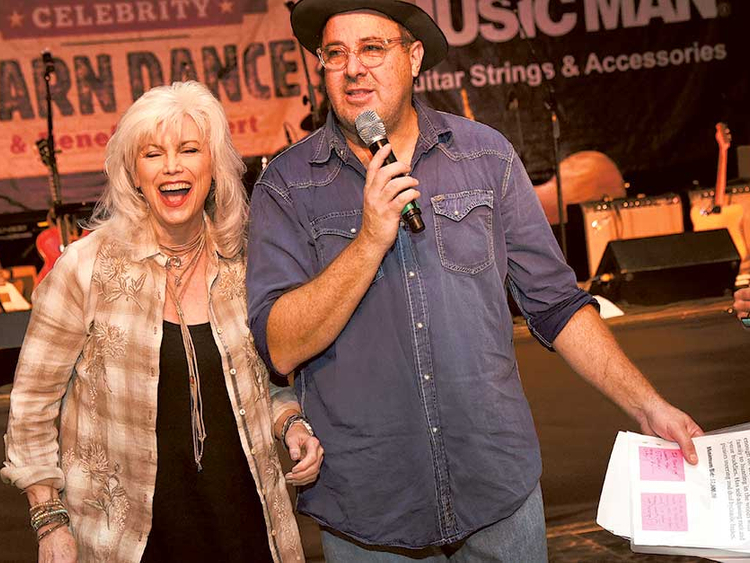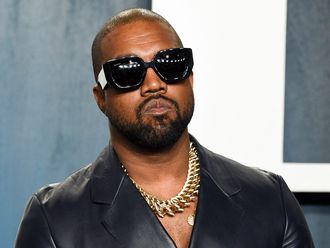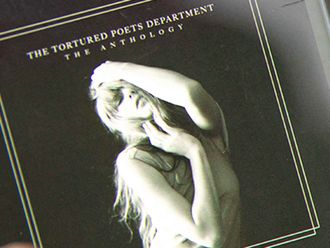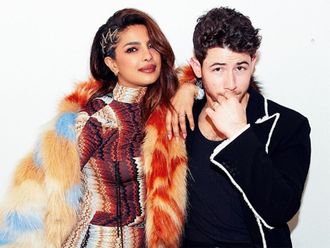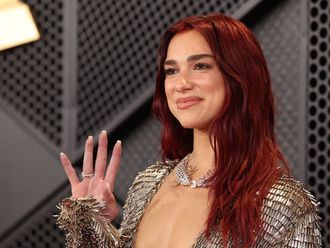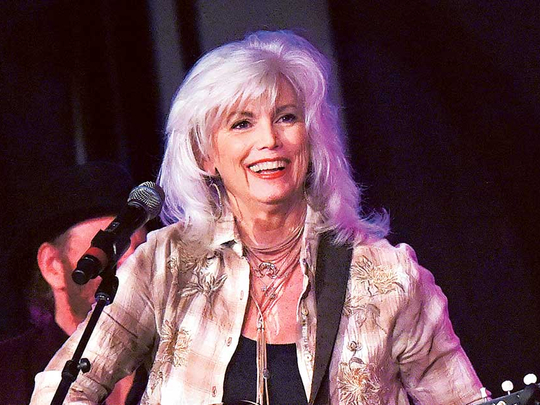
Some people take up arms for a cause; Emmylou Harris picks up her guitar.
The singer-songwriter has been touring the US with shows aimed at raising awareness of the global refugee crisis — and money for the aid organisation Jesuit Refugee Service. To share the stage, Harris enlisted pals she’s made in her four-decade-and-going-strong career, who just happen to be some of the greats: Steve Earle, Buddy Miller and the Milk Carton Kids have been joined by a rotating guest line-up including Robert Plant, Joan Baez and Nancy and Beth (aka actress Megan Mullally and her friend Stephanie Hunt).
We caught up with Harris, who got her start playing Washington, D.C. clubs, to talk about helping people locate their “compassion chips” to help refugees, how she’s avoided watching the political debates — and her friend Bob Dylan’s big prize.
How did you come to the issue?
It goes way back to my friendship with Gail Griffith [former Georgetown University administrator and student who now heads JRS’s education campaign]. She used to be one of two or three people in the audience when I was first knocking around, and she got me involved in the campaign to end land mines.
We put together the same blueprint as now — we’d get some musicians together and tour, and we did that off and on for a couple of years. We didn’t end land mines, but we raised a lot of money and shone a light on the issue.
Gail came to me and said, ‘You know, this refugee crisis is becoming catastrophic. What do you think of doing it again?’ It seemed like a no-brainer to me.
In this election season, politics must keep spilling into the issue.
We don’t even think about that — we’ve been blissfully doing shows on the nights of the debates.
We are so blessed in this country, and we can’t shut our eyes to the millions of refugees around the globe — 21 million of them aren’t ever going to be able to go home. These people are in a limbo, and their lives are either going to turn toward the good, in a helping hand, or they’re going to be fodder for dark side that is threatening the soul of this planet. So in addition to being right, this is also for our own good.
But when it comes to politics, I’m in my own bubble — I’ve been among audiences who are there for the music.
How do you go about enlisting all these big names — do you have to twist arms?
No, scheduling is the bugaboo — you’re asking people, ‘Can you give up your time and do what you do for a living, and you’re not going to get paid?’ But I’ve found musicians to be some of the most generous people. Every day, I feel almost astonished that I’m doing what I love, and so there’s this desire to give back, and I’ve found that in almost every musician I’ve met. And then there’s gentle persuasion. (laughs)
There’s been so much conversation lately about how women in the public eye are treated. What kind of criticism have you encountered and how do you deal?
I’ve been given a pass on that. With singing, it’s all about your voice and the way you approach your music. It’s not like being an actress where there’s more focus on your looks, and there’s age discrimination — and there probably should be more roles for women of all ages. But in the artistic community I’m in, as long as you can still sing ... I’ve never had to deal with my looks.
As a songwriter, what do you make of Bob Dylan winning the Nobel?
Dylan truly changed the English language, and not just in songwriting. There is ‘before Dylan’ and ‘after Dylan.’ We’re all pumped for him.
What do you hope people take away from the shows?
We have this chip of compassion and empathy for others in all of us. We have to stop thinking about people as other, as aliens. So many of these refugees are women and children, and so I’d like for people to look at their own families and realise what these families are going through. So showing up, buying the tickets — that helps JRS and the work they do. But ultimately there has to be a sea change on how we deal with this crisis. And I guess there is a political dimension, because it’s the right thing to open our borders. [Refugees] have to be brought into the world of normalcy — they should have homes and education and safety. We just have to raise our compassion quotient.



